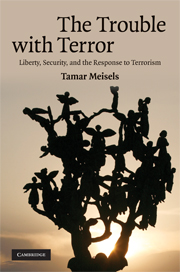Book contents
2 - The apologetics of terrorism: a refutation
Published online by Cambridge University Press: 04 August 2010
Summary
Assuming we know what terrorism is, can it ever be justified? What is the appropriate liberal, or humanist, attitude towards current events? The previous chapter concluded that defining terrorism as a distinct phenomenon leaves open the question of its possible justification. This chapter argues with those who proceed to justify terrorism under certain circumstances, and attempts to refute the central academic arguments frequently raised in defense of some acts of terrorism, particularly those directed against Israel and the US. While terrorism is far from a new phenomenon, either in the US or elsewhere, the events of September 11, 2001 have certainly pushed old questions concerning legitimate violence to the top of our agenda on good and evil. Resorting to analytical tools is perhaps no more than a philosopher's expression of despair, yet it is vital to understanding current events and appropriately influencing future ones. Philosophy, admittedly, cannot always supply one morally right answer to the exclusion of all others. At times, even strict ethical objectivism leaves room for some degree of value pluralism that enables the balancing of different morally acceptable principles against each other in a variety of legitimate ways, resulting in many cases in a plurality of morally valid political opinions. Terrorism, I will argue, is no such case, at least not from any perspective that regards itself as even remotely related to liberalism. Taken from the viewpoint of liberal morality, I suggest, terrorism is one of those rare instances in which only one response is morally valid.
- Type
- Chapter
- Information
- The Trouble with TerrorLiberty, Security and the Response to Terrorism, pp. 30 - 54Publisher: Cambridge University PressPrint publication year: 2008



